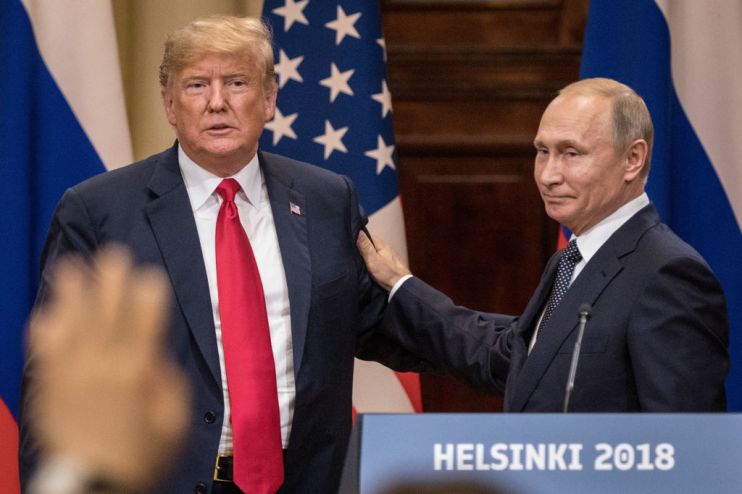Our divided country can’t even agree on who our enemies are

Aristotle wrote that “a common danger unites even the bitterest enemies”. So what hope of unity is there for a nation where the very perceptions of danger become contested?
Ahead of this week’s Nato meeting, the British Foreign Policy Group conducted a public opinion survey with pollsters at Opinium, exploring perceptions of the most pressing threats facing Britain and the world at large.
It reveals a nation starting to pull apart on one of the few areas that once brought us together.
With the brazen Salisbury assassination attempt still very present in British minds, Russia stands apart as the single greatest threat to global peace and security. It is followed by North Korea, Iran, and China — no longer simply regarded as an economic competitor to the UK, but a potentially dangerous autocratic state.
So far, so expected. But strikingly, almost a third of Britons classify the United States of America, our enduring partner in a “special relationship”, as a menace to the world. Concern about America’s influence captures the downward trend in global perceptions of the US since bombastic President Donald Trump took office.
In Britain, the growing antipathy towards the US reflects the increasingly binary identities that have emerged in the wake of the EU referendum, with politicians presenting a zero-sum choice of a future aligned with either America or the European Union.
The political divisions are stark. Just six per cent of Conservative voters rank the US as a top global threat, with most regarding it as the key to unlocking the “truly global” potential of Brexit Britain. In contrast, voters intending to support Labour in next week’s election are disproportionately likely to feel anxious about America’s international influence.
Comparing the views of their voting base in 2017, we can see that the rising concern about America is also matched by a declining degree of concern about Russia — with one of our most established foes now given equivalent status to our long-term friend.
The American antipathy is predominantly driven by older Labour voters, so it is safe to assume that it has been germinating over some time — perhaps with roots in the “betrayal” of the Iraq War. But it also reflects the priorities and worldview of Jeremy Corbyn and his key advisers, who are repelled by the notion of strategic multilateralism, and rather aspire to see Britain’s people and the Labour party itself as instrumental actors in a global socialist movement.
Through this prism, foreign policy should not be conducted with a balance of interests and values, but solely in pursuit of (seemingly) noble humanitarian causes.
This dramatic shift in the framing of Britain’s role in the world represents a true step-change, signalling the breakdown of the cross-party consensus that had formed over decades. It is difficult to imagine that this shift in gears would have taken place, nor have been so radical, under a more conventional Labour leader.
However, it is also true that Brexit, with its breaking down of old alliances, has irrevocably altered the status quo, and forced us to redefine our global footprint — opening the doors to blue sky thinking about our country’s place in the world.
What is most concerning about these developments is not that the British people are being presented with alternatives on foreign policy — we should not be afraid of a robust debate. We should, however, fear a time in which Britons fundamentally disagree about the threats we face as a nation.
Our shared understanding of our allies and aggressors has given us unity at home and protected our interests abroad. A greater degree of social polarisation on foreign policy will make it more difficult for us to perform effectively on the world stage.
Most chillingly, if we no longer agree on the enemy outside, we may well find our own enemies within.
